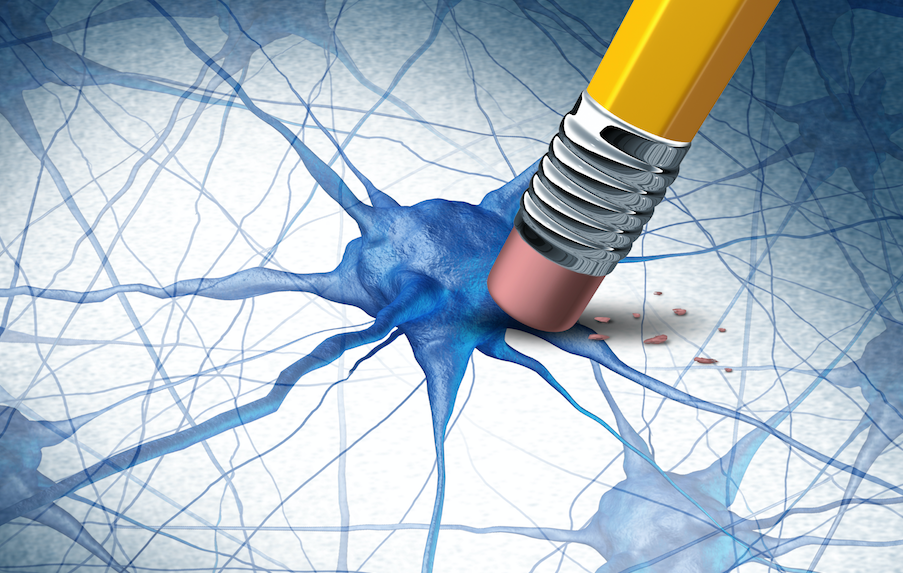Even at an early age, I knew there was something different about my grandfather. He was the only grandpa I had ever known, as my mother’s father had passed away before I was born. To me, my grandfather was a huge man (he was 6 feet tall) who was quiet, loving and followed my grandmother around everywhere. He would forget our names and it was clear my grandmother managed their lives. As I grew older, I knew that my grandpa was sick. I did not realize until later that he was suffering from Alzheimer’s disease.
According to the Alzheimer’s Association, more than 5 million Americans suffer from Alzheimer’s, a type of dementia that causes memory problems as well as with thinking and behavior. It is a progressive disease where symptoms get worse over time. As the most common form of dementia, it is anticipated that by 2050, the number of Alzheimer’s cases could rise to 16 million.
There is no known cause of Alzheimer’s disease. Genetics have been cited as a possible cause though there is no definitive link. “Only the early familial onset of Alzheimer’s disease is purely genetic and accounts for less than 5 percent of cases,” said Nanette Goodman, M.D., an internal medicine physician at the Senior Healthcare Center in Springhill. “There are some genes predisposing individuals to acquiring Alzheimer’s disease. The most common one is called APOE-e4. Someone who tests positive for this gene is not destined to get Alzheimer’s disease though. It merely increases the risk.”
The Alzheimer’s Association suggests that several factors, including genes, age, environment, lifestyle and coexisting medical conditions, are likely to be causes. Since some of these causes are lifestyle choices, research has suggested that there are choices that may help to prevent the onset of Alzheimer’s.
“A substantial amount of research suggests that at the population level, what’s good for the heart is good for the brain,” Glenn Smith, a board-certified clinical neuropsychologist and the Elizabeth Faulk Endowed Professor and chair of the Department of Clinical and Health Psychology at the University of Florida, said. “Groups of people who are more physically active, maintain a heart healthy diet and keep their blood pressure under control have lower rates of dementia. People who remain cognitively engaged especially in novel activities and socially engaged appear to have lower rates of dementia. However, it is important to understand that doing such activities will not necessarily keep a given person from developing dementia.”
When I remember my grandfather and his suffering from Alzheimer’s Disease, my memories are equally struck by that of my grandmother as his caregiver. My grandparents had been married for more than 50 years at the time, and my grandmother’s life partner had slowly morphed into more of her child. I know she loved my grandfather, of course, but the stress and wear of caring for my grandfather led to elevated levels of stress and equal ones of guilt for being resentful about the agonizing job she had.
Currently, more than 15 million Americans provide care for loved ones with Alzheimer’s or other forms of dementia, and 35 percent of those caregivers have reported that their health has declined as a result, according to the Alzheimer’s Association.
“The challenges for caregivers can be immense. As caregiving humans witnessing your loved one’s cognitive and functional decline, we will experience both physical and emotional exhaustion over time,” said Flory Antiga-Stephens, LCSW and case manager at the Senior Healthcare Center in Springhill, said. “It is my experience from talking to many caregivers and facilitating a caregivers group for years that often the caregiver becomes so focused on the daily demands that perspective is lost. This can lead to feeling overwhelmed, fatigued and eventually hopelessness.”
The important thing for caregiver to keep in mind is that they matter too, said Antiga-Stephens. There are many caregiver resources in their communities, as well as online. For example, caregiver groups like Elder Options, Savvy Caregiver Training and via the Alzheimer’s Association.
“If a person with Alzheimer’s Disease was a loved one, the first challenge is coming to accept the changes in the loved one’s abilities and in the relationship with that person. The process of loss and grief can be slow and long,” said Smith. “Accept help — few can ultimately meet the needs of a person with advancing dementia alone. The vast majority of patients with dementia require a caring community. But it can be hard for caregivers to accept that they can’t do it alone.”
10 Warning Signs of Alzheimer’s Disease per the Alzheimer’s Association
Individuals may experience one or more of these signs in a different degree. If you notice any of them in yourself or a loved one, please see a medical professional.
- Memory loss that may disrupt daily life
- Challenges in planning or solving problems
- Difficulty completing familiar tasks at home, at work or at leisure
- Confusion with time or place
- Trouble understanding visual images and spatial relationships
- New problems with words in speaking or writing
- Misplacing things and the ability to retrace steps
- Decreased or poor judgment
- Withdrawal from work or social activities
- Changes in mood or personality
Related articles:
Boost Your Stamina With These Tips
4 Creative Ways To Exercise For Free
Financial Well-Being: How To Stay Happy On A Budget
Nail Down Your Pre-Workout Routine
7 Exercises That Are Better With Workout Buddies!

